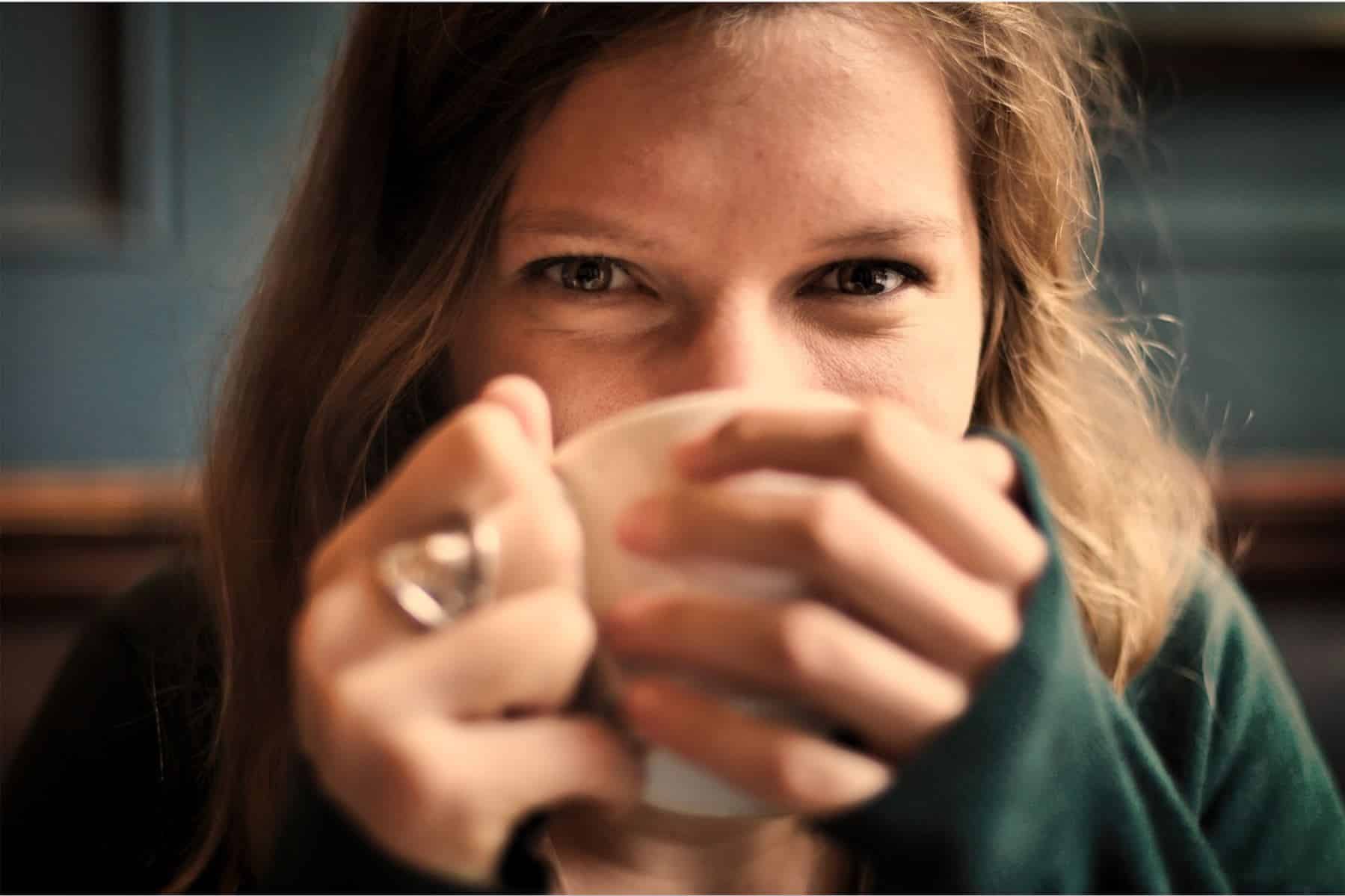
Coffee lovers wake up and smell the new research that may extend your life. It concludes that your cup or two of morning brew may be good for you, and increase your lifespan. Previous studies stated coffee might shorten your life by leading to life-threatening diseases like cancer. Recent research has changed that thought pattern. Now, a cup a day may chase cancer away. A cup-a-Joe may increase blood flow. The confirmation that my beloved coffee may be healthy has left me so happy it has awakened my inner poet. I promise not to rhyme anymore.
This new research is music to many coffee lovers’ ears and warms our soul which may also lead to a happier life. Science has already proven a happier life is a healthier life. As the research below shows, coffee may even reduce suicide and help patients suffering from Parkinson’s Disease. Coffee may be the miracle answer.
However, it also appears that scientific research contradicts itself from one discovery to the next.
Like the New England weather at Harvard, if you don’t like the current scientific findings on a new health topic, wait five minutes, and it may change.
With over 400 billion cups of coffee thought to be consumed every year, coffee is one of the world’s most popular drinks.
What are the newly discovered health benefits and risks of drinking coffee?
 Let’s begin with the risks. Coffee is not for everyone. People with caffeine allergies, glaucoma, epilepsy, and gastroesophageal reflux disease (GERD) may want to stay away from caffeinated coffee. Harvard Research found that drinking eight or more cups daily has been associated with increased suicide risk.
Let’s begin with the risks. Coffee is not for everyone. People with caffeine allergies, glaucoma, epilepsy, and gastroesophageal reflux disease (GERD) may want to stay away from caffeinated coffee. Harvard Research found that drinking eight or more cups daily has been associated with increased suicide risk.
The good news. Two new studies, one in the U.S. and one in Europe, have found that drinking more coffee each day could lead to a longer life. The benefits may range from helping to prevent diabetes, protect heart rhythm, lower risks of high-grade prostate cancer, colorectal cancer, liver disease, naturally treat Parkinson ’s disease, and reduce mental health issues like depression and suicide.
For those infected with hepatitis C, drinking coffee may reduce DNA damage, increase the clearance of virus-infected cells, and slow the scarring process, which may help explain coffee’s apparent role in reducing liver disease progression risk.
According to the Prostate Cancer Foundation these studies tracked over 700,000 people across multiple ethnic groups in over 10 European countries and the U.S. It was discovered that even drinking decaffeinated coffee supplied benefits to individuals over those who did not drink the beverage. The studies have even dispelled the old myth that caffeine might increase the risk of atrial fibrillation, an irregular heart rhythm. Drinking low-dose caffeine, defined as fewer than six cups of coffee a day, may even have a protective effect on heart rhythm.
Research published in the April issue of Cancer Epidemiology, Biomarkers & Prevention, Researchers from the USC Norris Comprehensive Cancer Center examined 5,100 men and women diagnosed with colorectal cancer within the past six months, and an additional 4,000 men and women with no history of colorectal cancer to serve as a control group.
“We found that drinking coffee is associated with lower risk of colorectal cancer, and the more coffee consumed, the lower the risk,” said Stephen Gruber, director of the USC Norris Comprehensive Cancer Center and senior author of the study.
What about coffee and Parkinson ’s disease?
Coffee consumption seems to be associated with about one-third lower risk concerning Parkinson’s Disease. Caffeine appears to be the key ingredient because tea also seems protective and decaf coffee does not. Parkinson’s patients treated with the caffeine equivalent of two cups of coffee a day significantly improved movement symptoms within three weeks.
The studies concluded that consuming 1-2 cups of coffee per day resulted in a 12% lower risk of mortality and consuming 2-4 cups a day resulted in an 18% lower risk of mortality. These results in inverse rates of mortality to coffee consumption showed in diseases such as diabetes, heart disease, kidney disease, stroke, and cancer.
How can coffee help prevent diseases from cancer and heart attack to suicide?
![]()
According to Nutritional Facts.org, and USC News coffee is a complex mixture of compounds that have various biological effects, such as anti-inflammatory properties. It is believed that in addition to these properties, coffee is a source of polyphenols which have potent antioxidant properties, which helps cells cope with free radicals in the blood.
Do you know why coffee has been named the number-two healthiest beverage?
The Beverage Guidance Panel assembled to provide recommendations on benefits and risks of various beverage categories, found tea and coffee—preferably without creamer or sweetener—tied as the number-two healthiest beverages, second only to water. The studies in this article are published in the Annals of Internal Medicine.
The National Institutes of Health–AARP Diet and Health Study is the largest-ever prospective study conducted on diet and health. Its research concluded that people who drank six or more cups of coffee per day had a 10 to 15 percent lower mortality from heart disease, respiratory disease, stroke, injuries, accidents, diabetes, and infections. However, the opposite effect was found when a study looked at people 55 and younger. Drinking more than six cups of coffee daily increased their risk of death.
The conclusion, according to Nutritionfacts.org, and based on all the best studies to date listed in this article, is that coffee consumption may indeed be associated with a small reduction in mortality, on the order of a 3 percent lower risk of premature death for each cup of coffee consumed daily.
If coffee is good for the body is it also good for the spirit? Yes!

The Harvard Gazette explained that caffeine could lower the risk of depression among coffee drinkers because it stimulates the central nervous system which may act as a mild antidepressant by boosting production of certain neurotransmitters in the brain, including serotonin, dopamine, and noradrenaline.
Harvard University researchers discovered that people who drank two or more cups of coffee each day appeared to have about half the suicide risk compared to non-coffee drinkers. A Kaiser Permanente study found that people who drank more than six cups a day were 80 percent less likely to commit suicide. According to researchers at the Harvard School of Public Health (HSPH) drinking several cups of coffee daily appears to reduce the risk of suicide in men and women by about 50 percent. The new study was published online July 2, 2018, in The World Journal of Biological Psychiatry.
“Unlike previous investigations, we were able to assess association of consumption of caffeinated and non-caffeinated beverages, and we identify caffeine as the most likely candidate of any putative protective effect of coffee,” said lead researcher Michel Lucas, research fellow in the Department of Nutrition at HSPH.
Your takeaway message of these studies? The benefits far outweigh the risks.
Dr. Marc Gunter, author of the European study summed up the benefits of drinking coffee when he stated, “The takeaway message would be that drinking a couple cups of coffee a day doesn’t do you any harm, and actually, it might be doing you some good.”
Dr. Gunter’s summation was seconded by Dr. Veronica Wendy Setiawan, associate professor of preventative medicine at USC’s Keck School of Medicine, who led the study on nonwhite populations, when she said, “These studies and the previous studies suggest that for a majority of people, there’s no long-term harm from drinking coffee. Moderate coffee consumption can be incorporated into a healthy diet and lifestyle.”
For years my non-coffee-drinking husband would “tisk, tisk” my morning coffee routine and follow it up with, “Be stubborn about your health despite proof that coffee is bad for you. Just sayin’.” The current research is a new day dawning because now my husband brings me coffee in bed. And sometimes, to be sure it is perfect before saying, “This cup is for you,” he will even sneak a sip or two.
I know, I know! I promised not to rhyme. But, my coffee made me do it just one more time. I’m done!
 About the Author: Kathleen (Kat) O’Keefe-Kanavos is a three-time Breast Cancer Survivor, as seen on Dr. Oz Show, DOCTORS, NBC, and CBS, whose dreams diagnose her illness, and was a Dream Research Participant for Dr. Larry Burk‘s Dream Research. They co-wrote, Dreams That Can Save Your Life. She is a TV Producer/Host and award-winning Author/Lecturer who promotes patient advocacy and connecting with Inner-guidance through Dreams for success in health, wealth, and relationships. Learn more @ KathleenOKeefeKanavos.com
About the Author: Kathleen (Kat) O’Keefe-Kanavos is a three-time Breast Cancer Survivor, as seen on Dr. Oz Show, DOCTORS, NBC, and CBS, whose dreams diagnose her illness, and was a Dream Research Participant for Dr. Larry Burk‘s Dream Research. They co-wrote, Dreams That Can Save Your Life. She is a TV Producer/Host and award-winning Author/Lecturer who promotes patient advocacy and connecting with Inner-guidance through Dreams for success in health, wealth, and relationships. Learn more @ KathleenOKeefeKanavos.com
Photo credit:
httpspixabay.comengirl-woman-smile-smiling-happy-2626753StockSnap-Free-commercial-use-No-Attribution-Required.jpg
httpspixabay.comencoffee-mocha-espresso-cappuccino-839233foundry-Free-for-Commercial-use-No-Attribution-required.jpg
httpspixabay.comencup-coffee-cup-cup-of-coffee-moon-1956716Pixel2013-Free-for-Commercial-Use-No-attribution-required-1.jpg
httpspixabay.comencoffee-computer-cup-desk-drink-1869820pexels-FREE-for-commercial-use-No-attribution-required.jpg
Article Research:
Prostate Cancer Foundation- https://www.pcf.org/new-study-shows-coffee-health-benefits/?gclid=EAIaIQobChMIpv2c1KeD3QIV3I2zCh3eOQrTEAAYASAAEgKWMvD_BwE
What Do You Get From Drinking Coffee? – Medtrend, https://medtrend.org/what-do-you-get-from-drinking-coffee/
Nutritional Facts.org- https://nutritionfacts.org/topics/coffee/?gclid=EAIaIQobChMIpv2c1KeD3QIV3I2zCh3eOQrTEAAYAiAAEgIaI_D_BwE
Coffee | Health Topics | Nutritionfacts.org, https://nutritionfacts.org/topics/coffee/
US Beverage Panel Recommendations http://www.cpc.unc.edu/projects/nutrans/policy/beverage/us-beverage-panel/panel_recommendations
New Study Shows Coffee Health Benefits – Pcf, https://www.pcf.org/new-study-shows-coffee-health-benefits/ (accessed August 23, 2018).
Study links coffee consumption to decreased risk of colorectal cancer https://news.usc.edu/97761/new-study-links-coffee-consumption-to-decreased-risk-of-colorectal-cancer/
April issue of Cancer Epidemiology, Biomarkers & Prevention http://cebp.aacrjournals.org/
Coffee Drinking Tied To Lower Risk Of Suicide – Harvard .., https://news.harvard.edu/gazette/story/2013/07/drinking-coffee-may-reduce-risk-o
Dr. Mark Gunter https://www.imperial.ac.uk/people/m.gunter/publications.html
Dr. Mark Coffee Drinking and Mortality in 10 European Countries: A Multinational Cohort Study. https://www.ncbi.nlm.nih.gov/pubmed/28693038
Dr. Veronica Setiawan https://keck.usc.edu/faculty-search/veronica-w-setiawan/
https://www.researchgate.net/profile/Veronica_Setiawan
Harvard Gazette- https://news.harvard.edu/gazette/story/2013/07/drinking-coffee-may-reduce-risk-of-suicide-by-50/







